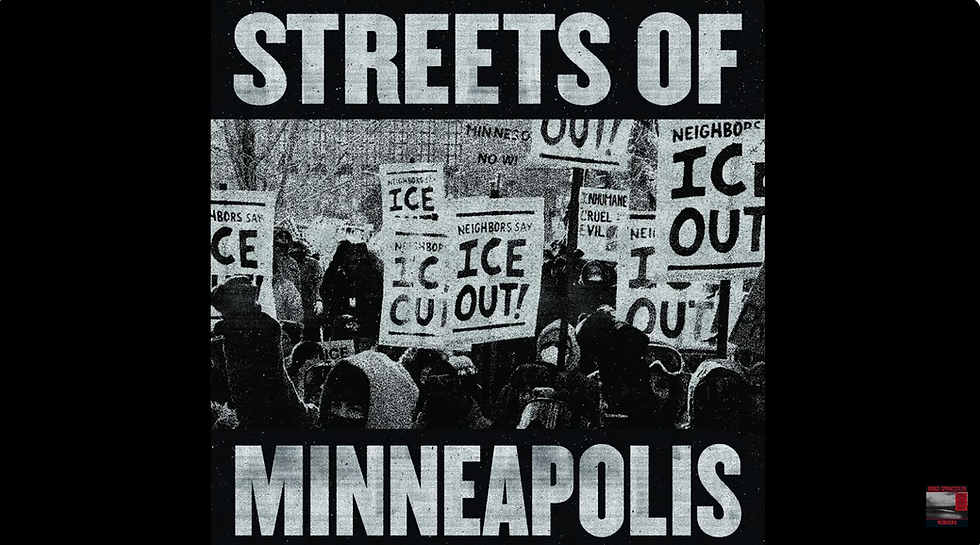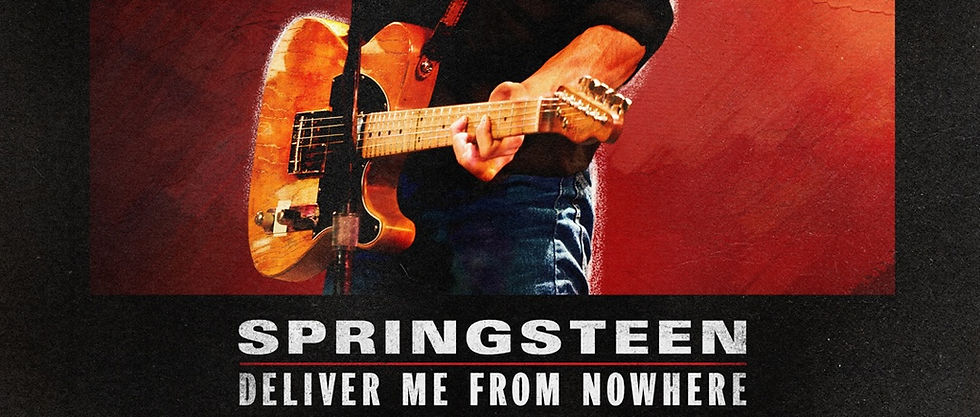'Only the Strong Survive' review: Springsteen's smooth soul tribute will grow on you
- Pete Chianca

- Nov 11, 2022
- 4 min read

Note: Springsteen will "take over" the Tonight Show with Jimmy Fallon with four performances starting Monday, Nov. 14, and The Boss also has an extended conversation with Questlove on the Questlove Supreme podcast. Missed the Howard Stern interview? Jay Justig at NJ Arts has a primo encapsulation.
I never thought I’d listen to a new Bruce Springsteen album and think, “This sounds pretty good, but he’s no Southside Johnny.” But here we are.
At least that was my initial thought when I started spinning through “Only The Strong Survive,” Springsteen’s album of soul covers, both famous and obscure, released Nov. 11. At first blush the arrangements, awash in meticulously placed strings and exquisite background vocals, seemed professional but vaguely sterile, unlike the warm, loosey-goosey feel of “We Shall Overcome: The Seeger Sessions,” Bruce’s only other covers project to date.
And as for Bruce’s voice, something about it just threw me off at first: In contrast to Southside, whose plaintive croon and casual phrasing — somehow smooth and crinkly at the same time — seem tailor-made for blue-eyed soul, Springsteen struck me as something of an imposter (or at least out of his element) when attempting to graft his gravely, rock-hewn voice to, say, the Walter Orange part on the Commodores’ “Night Shift.”
But again, that was on first listen. Interestingly, I found myself going back, and back again, and what do you know? Bruce’s affection for these songs started getting through to me.
The first single, his take on Frank Wilson’s “Do I Love You,” was admittedly pretty infectious and left me looking forward to more soulful bopping and weaving on the rest of the album. But “Night Shift” just left me pining for the original, and the third single, “Don’t Play That Song,” seemed a bit slight compared to Aretha’s version. But it turns out, in context on the album, they fit well into a collection of stirring soul nuggets that Bruce eventually sells through sheer force of his own clear affection for them.
And on repeated listens there are actually more than a few definite standouts that I found myself missing when they were over — even among the songs whose original versions are well known and loved, like The Temptations’ moody “I Wish It Would Rain,” and Jimmy Ruffin’s “What Becomes Of The Brokenhearted.” Maybe it’s because his voice is better suited for melancholy than hopeful romance, but the heartbreak behind these classics feels visceral under Bruce’s tutelage.
As for the songs I hadn’t known, “Turn Back the Hands of Time,” which apparently sold a million copies for Tyrone Davis in 1970, is the true gem of the bunch, somehow both soaring and wistful, building to a vibrant crescendo of glorious, soulful sadness. But there are other winners too, like the vaguely funky “When She Was My Girl” (originally by the Four Tops) and the horn- and piano-driven Jackie Shane rave-up “Any Other Way,” which the Jukes should add to their playlist, stat.
The choices are, in the end, actually pretty inspired, a mix of songs you’re happy to remember not to forget and how-was-this-not-a-hit lost gems. (And they definitely leave you wondering about the 40 or so tracks that Bruce told Questlove he recorded but left on the cutting room floor.) Some are sad, some joyous, some — like “Hands of Time,” the memory-lane crooner “Soul Days” with Sam Moore, and the gradually glorious title track — are both. The vibe, though, merging the timelessness of the originals with an added layer of exuberant rediscovery, is, eventually, uniformly infectious.
Do I wish the proceedings were more raucous, less formal? Sure. And Bruce’s voice and style aren’t necessarily well matched with all of these songs — The Four Tops managed to sell their shouts about seven “Rooms of Gloom” with a fire-and-brimstone preacher vibe, but Bruce just sounds sort of unhinged. Contrary to my initial fish-out-of-water impression of his vocal takes, though, I came to appreciate his dedication to not just singing these songs, but feeling them — not that just singing them would have been a small feat. (Have you ever tried to sing along with “The Sun Ain’t Gonna Shine Anymore”? It’s hard!) At the end of the day, Springsteen brings both the range and the chops to make these covers successful.
Yes, there’s sure to be plenty of discussion about whether this album is “necessary,” but just as an exercise in curation, introducing worthy songs to a new audience, and engendering royalties for the songwriters and their estates, it feels like a worthy project. Even beyond that, though, who are we to say what’s necessary? Dylan’s five albums’ worth of American Songbook standards probably weren’t anything the general public was clamoring for, but clearly it was important to Dylan to record them — and he followed them with a terrific original album. They served a purpose to him, and I have a feeling these songs will do the same for Bruce.
Besides, Bruce has been getting things right long enough for me not to question his detours, because even when I doubt him he tends to prove me wrong. (I didn’t love “The Seeger Sessions” at first either, until I did.) “Only The Strong Survive” may not be “essential,” but it’s likely to be something I’ll often feel moved to spin in the background, just to enjoy the vibe. Sometimes that’s all you need.






Terry Smith @musictalks and Jesse @jessejacksonDFW stay up all night and give you their hot takes on the new Bruce Springsteen @springsteen release - Only the Strong Survive.
We give our top 3/bottom 3 picks and discuss if these songs will make the set list in 2023!
https://setlustingbruce.libsyn.com/only-the-strong-survive-review